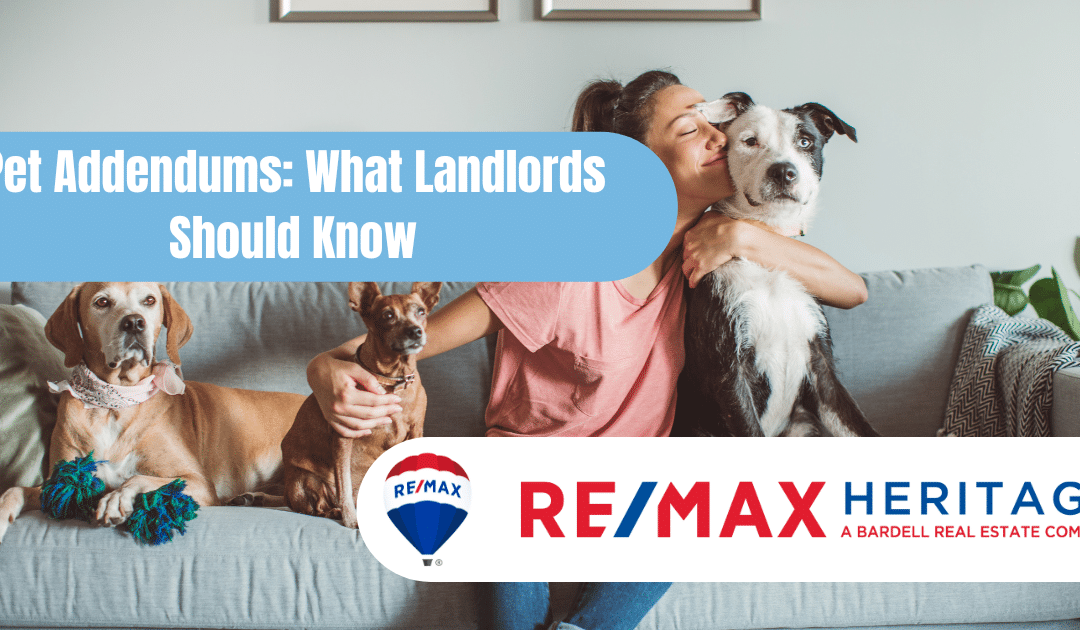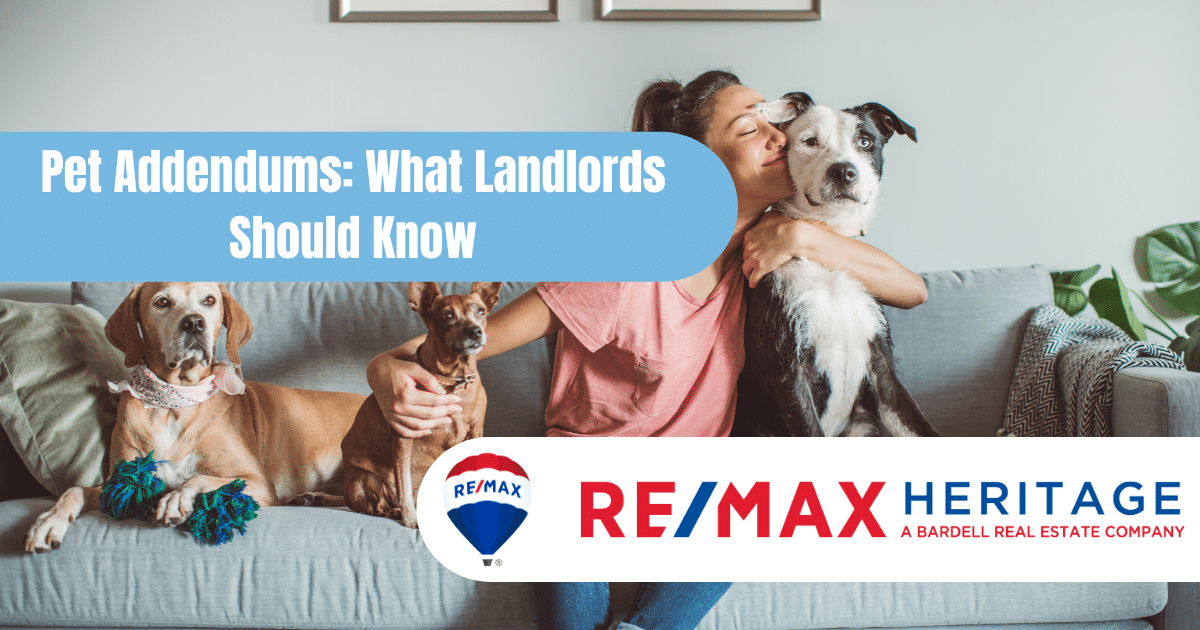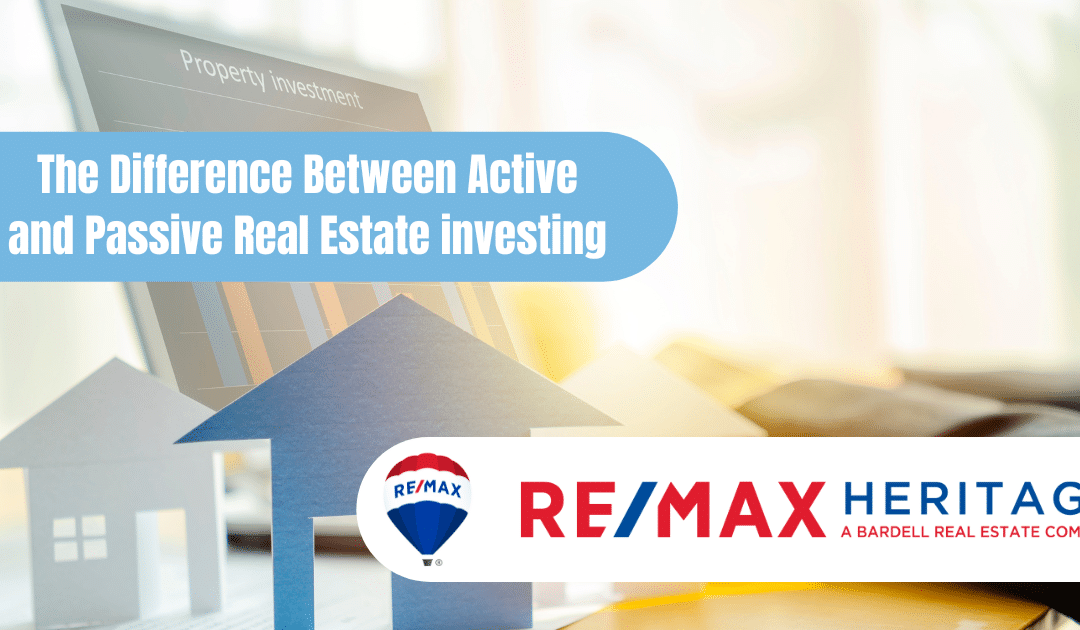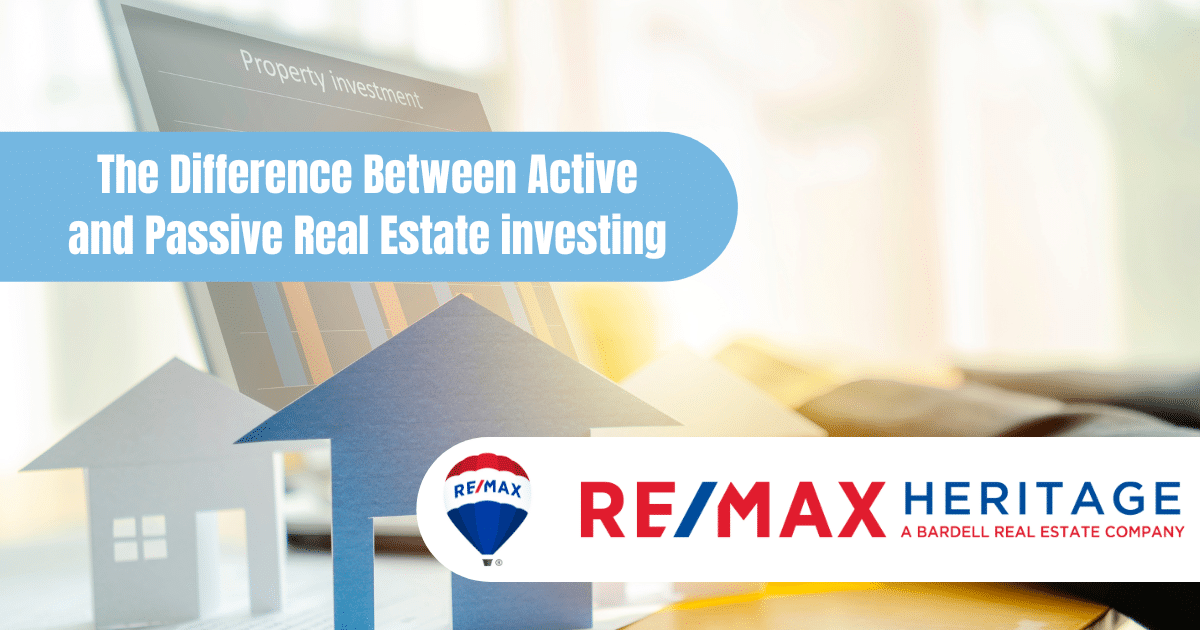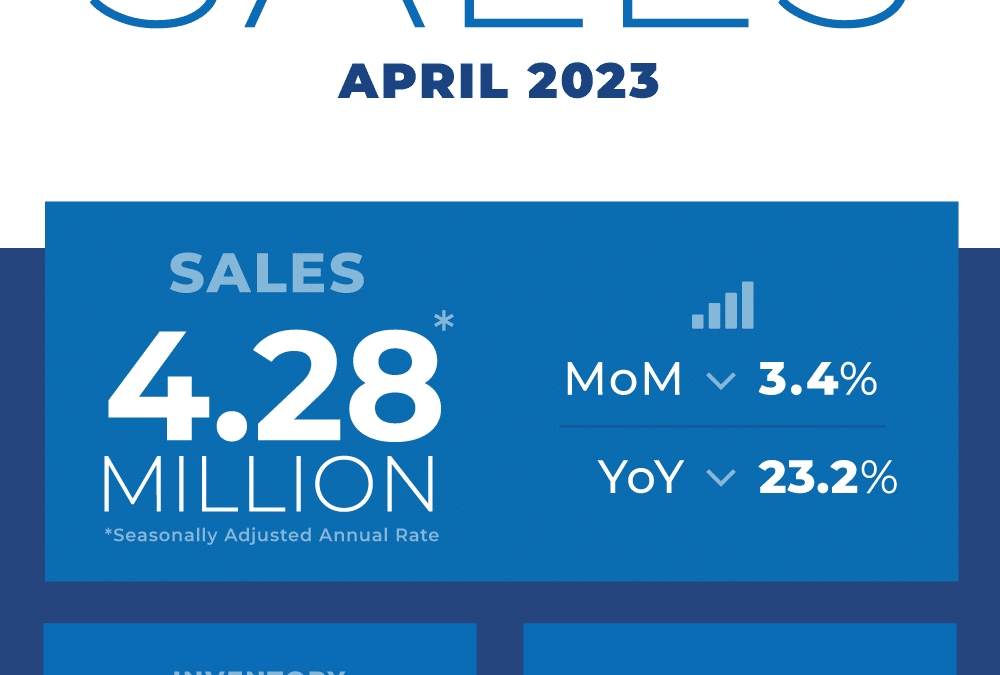
Existing-Home Sales report for April
Existing-Home Sales Faded 3.4% in April
WASHINGTON (May 18, 2023) – Existing-home sales decreased in April, according to the National Association of REALTORS®. All four major U.S. regions registered month-over-month and year-over-year sales declines.
Total existing-home sales1 – completed transactions that include single-family homes, townhomes, condominiums and co-ops – slid 3.4% from March to a seasonally adjusted annual rate of 4.28 million in April. Year-over-year, sales slumped 23.2% (down from 5.57 million in April 2022).
“Home sales are bouncing back and forth but remain above recent cyclical lows,” said NAR Chief Economist Lawrence Yun. “The combination of job gains, limited inventory and fluctuating mortgage rates over the last several months have created an environment of push-pull housing demand.”
Total housing inventory2 registered at the end of April was 1.04 million units, up 7.2% from March and 1.0% from one year ago (1.03 million). Unsold inventory sits at a 2.9-month supply at the current sales pace, up from 2.6 months in March and 2.2 months in April 2022.
The median existing-home price3 for all housing types in April was $388,800, a decline of 1.7% from April 2022 ($395,500). Prices rose in the Northeast and Midwest but retreated in the South and West.
“Roughly half of the country is experiencing price gains,” Yun noted. “Even in markets with lower prices, primarily the expensive West region, multiple-offer situations have returned in the spring buying season following the calmer winter market. Distressed and forced property sales are virtually nonexistent.”
Properties typically remained on the market for 22 days in April, down from 29 days in March but up from 17 days in April 2022. Seventy-three percent of homes sold in April were on the market for less than a month.
First-time buyers were responsible for 29% of sales in April, up from 28% in both March 2023 and April 2022. NAR’s 2022 Profile of Home Buyers and Sellers – released in November 20224 – found that the annual share of first-time buyers was 26%, the lowest since NAR began tracking the data.
All-cash sales accounted for 28% of transactions in April, up from 27% in March and 26% the previous year.
Individual investors or second-home buyers, who make up many cash sales, purchased 17% of homes in April, identical to March and one year ago.
Distressed sales5 – foreclosures and short sales – represented 1% of sales in April, unchanged from last month and the prior year.
According to Freddie Mac, the 30-year fixed-rate mortgage(link is external) averaged 6.35% as of May 11. That’s down from 6.39% the previous week but up from 5.30% one year ago.
Single-family and Condo/Co-op Sales
Single-family home sales waned to a seasonally adjusted annual rate of 3.85 million in April, down 3.5% from 3.99 million in March and 22.4% from the previous year. The median existing single-family home price was $393,300 in April, down 2.1% from April 2022.
Existing condominium and co-op sales were recorded at a seasonally adjusted annual rate of 430,000 units in April, down 2.3% from March and 29.5% from one year ago. The median existing condo price was $348,000 in April, an annual increase of 0.7%.
Regional Breakdown
Existing-home sales in the Northeast receded 1.9% from March to an annual rate of 510,000 in April, down 23.9% from April 2022. The median price in the Northeast was $422,700, up 2.8% from the previous year.
In the Midwest, existing-home sales declined 1.9% from one month ago to an annual rate of 1.02 million in April, dropping 21.5% from the prior year. The median price in the Midwest was $287,300, up 1.8% from April 2022.
Existing-home sales in the South decreased 3.4% from March to an annual rate of 1.98 million in April, a 20.2% decline from one year ago. The median price in the South was $357,900, down 0.6% from April 2022.
In the West, existing-home sales slipped 6.1% from the previous month to an annual rate of 770,000 in April, down 31.3% from the previous year. The median price in the West was $578,200, down 8.0% from April 2022.
About NAR
The National Association of REALTORS® is America’s largest trade association, representing more than 1.5 million members involved in all aspects of the residential and commercial real estate industries. The term REALTOR® is a registered collective membership mark that identifies a real estate professional who is a member of the National Association of REALTORS® and subscribes to its strict Code of Ethics.
# # #
For local information, please contact the local association of REALTORS® for data from local multiple listing services (MLS). Local MLS data is the most accurate source of sales and price information in specific areas, although there may be differences in reporting methodology.
NOTE: NAR’s Pending Home Sales Index for April is scheduled for release on May 25, and Existing-Home Sales for May will be released on June 22. Release times are 10 a.m. Eastern.
1 Existing-home sales, which include single-family, townhomes, condominiums and co-ops, are based on transaction closings from Multiple Listing Services. Changes in sales trends outside of MLSs are not captured in the monthly series. NAR benchmarks home sales periodically using other sources to assess overall home sales trends, including sales not reported by MLSs.
Existing-home sales, based on closings, differ from the U.S. Census Bureau’s series on new single-family home sales, which are based on contracts or the acceptance of a deposit. Because of these differences, it is not uncommon for each series to move in different directions in the same month. In addition, existing-home sales, which account for more than 90% of total home sales, are based on a much larger data sample – about 40% of multiple listing service data each month – and typically are not subject to large prior-month revisions.
The annual rate for a particular month represents what the total number of actual sales for a year would be if the relative pace for that month were maintained for 12 consecutive months. Seasonally adjusted annual rates are used in reporting monthly data to factor out seasonal variations in resale activity. For example, home sales volume is normally higher in the summer than in the winter, primarily because of differences in the weather and family buying patterns. However, seasonal factors cannot compensate for abnormal weather patterns.
Single-family data collection began monthly in 1968, while condo data collection began quarterly in 1981; the series were combined in 1999 when monthly collection of condo data began. Prior to this period, single-family homes accounted for more than nine out of 10 purchases. Historic comparisons for total home sales prior to 1999 are based on monthly single-family sales, combined with the corresponding quarterly sales rate for condos.
2 Total inventory and month’s supply data are available back through 1999, while single-family inventory and month’s supply are available back to 1982 (prior to 1999, single-family sales accounted for more than 90% of transactions and condos were measured only on a quarterly basis).
3 The median price is where half sold for more and half sold for less; medians are more typical of market conditions than average prices, which are skewed higher by a relatively small share of upper-end transactions. The only valid comparisons for median prices are with the same period a year earlier due to seasonality in buying patterns. Month-to-month comparisons do not compensate for seasonal changes, especially for the timing of family buying patterns. Changes in the composition of sales can distort median price data. Year-ago median and mean prices sometimes are revised in an automated process if additional data is received.
The national median condo/co-op price often is higher than the median single-family home price because condos are concentrated in higher-cost housing markets. However, in a given area, single-family homes typically sell for more than condos as seen in NAR’s quarterly metro area price reports.
4 Survey results represent owner-occupants and differ from separately reported monthly findings from NAR’s REALTORS® Confidence Index, which include all types of buyers. The annual study only represents primary residence purchases, and does not include investor and vacation home buyers. Results include both new and existing homes.
5 Distressed sales (foreclosures and short sales), days on market, first-time buyers, all-cash transactions and investors are from a monthly survey for the NAR’s REALTORS® Confidence Index, posted at nar.realtor.


